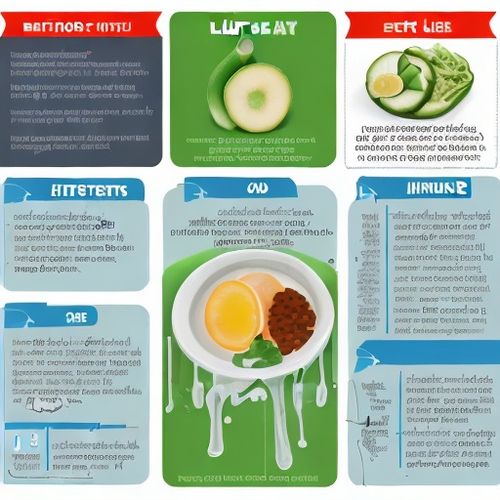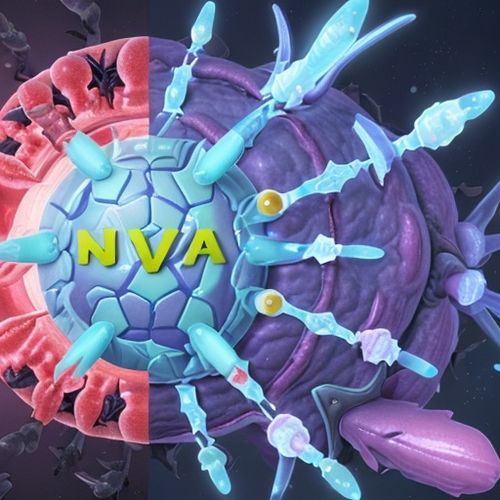The concept of alkaline foods and their impact on the body's pH levels has been a topic of growing interest in the health and wellness community. While the human body maintains a tightly regulated pH balance, the foods we consume can influence this equilibrium in subtle yet meaningful ways. Alkaline foods, typically those with a higher pH value, are believed by some to promote better health by reducing acidity in the body. However, the science behind this claim is more nuanced than it may initially appear.
Understanding pH and the Body's Natural Balance
The pH scale measures how acidic or alkaline a substance is, ranging from 0 to 14. A pH of 7 is considered neutral, while values below 7 are acidic and above 7 are alkaline. The human body operates within a narrow pH range, with blood typically maintaining a slightly alkaline level between 7.35 and 7.45. This balance is crucial for proper cellular function and metabolic processes. While certain organs like the stomach require high acidity (pH 1.5-3.5) for digestion, other systems depend on maintaining alkalinity to function optimally.
The Alkaline Diet Theory
Proponents of the alkaline diet suggest that consuming foods with higher pH values can help neutralize excess acidity in the body. This dietary approach emphasizes fruits, vegetables, nuts, and legumes while minimizing meat, dairy, and processed foods. The theory posits that modern diets high in acid-forming foods may lead to a condition called chronic low-grade acidosis, potentially contributing to various health issues. While the kidneys and lungs primarily regulate pH, dietary choices may influence this balance over time through complex physiological mechanisms.
Scientific Perspectives on Alkaline Foods
Research indicates that while food can affect urine pH, its impact on blood pH is minimal due to the body's robust buffering systems. However, alkaline-forming foods often contain beneficial nutrients that support overall health regardless of their pH effects. Leafy greens, for instance, are rich in magnesium and potassium, minerals that play roles in hundreds of biochemical reactions. Cruciferous vegetables contain compounds that may help reduce inflammation. The health benefits attributed to alkaline foods might stem more from their nutritional profile than their pH influence.
Potential Benefits Beyond pH
Even if the direct pH-modifying effects are limited, an alkaline-focused diet often leads to positive health outcomes. Such eating patterns typically increase intake of fiber, antioxidants, and essential vitamins while reducing consumption of processed foods and added sugars. Some studies suggest this dietary approach may benefit bone health by reducing calcium excretion, though more research is needed. Other potential advantages include improved kidney function and reduced risk of chronic diseases, though these effects are likely due to overall dietary quality rather than pH alteration alone.
Practical Considerations and Limitations
While incorporating more alkaline foods can be beneficial, extreme approaches to pH balance may be unnecessary or even counterproductive. The body's regulatory systems are remarkably efficient at maintaining pH homeostasis. Rather than obsessing over food pH values, focusing on a balanced diet rich in whole, minimally processed foods appears to be the most sensible approach. It's also important to recognize that individual responses to dietary changes can vary based on genetics, health status, and lifestyle factors.
Debunking Common Myths
Several misconceptions surround alkaline diets and pH balance. Contrary to popular belief, acidic foods like citrus fruits actually have an alkalizing effect once metabolized. Similarly, cancer cells cannot be "starved" by creating an alkaline environment, as tumors create their own acidic microenvironment regardless of systemic pH. While lemon water and apple cider vinegar may offer health benefits, their impact on overall body pH is negligible. Understanding these nuances helps separate evidence-based nutrition from pseudoscience.
Integrating Alkaline Principles Sensibly
A practical approach to alkaline eating involves emphasizing plant-based foods without eliminating all acid-forming items. Aim for a diet where 70-80% of foods come from alkaline sources, allowing for moderate consumption of healthy acid-forming foods like fish and whole grains. Hydration plays a crucial role in supporting the body's pH regulation, so adequate water intake should accompany dietary changes. Remember that stress management and physical activity also significantly influence acid-base balance and overall health.
The Bottom Line on Alkaline Foods
While the pH value of foods may influence the body's acid-base balance to some degree, the most significant health benefits come from the overall nutritional quality of one's diet. Alkaline-promoting foods tend to be nutrient-dense options that support various aspects of health regardless of their pH effects. Rather than pursuing extreme dietary measures to manipulate body chemistry, focus on consuming a variety of whole foods, staying hydrated, and maintaining a healthy lifestyle. As with any dietary approach, individual needs vary, and consulting with a healthcare professional can help determine the most appropriate nutritional strategy.

By Sarah Davis/May 19, 2025

By Natalie Campbell/May 19, 2025

By George Bailey/May 19, 2025

By Lily Simpson/May 19, 2025

By David Anderson/May 19, 2025

By Olivia Reed/May 19, 2025

By Amanda Phillips/May 19, 2025

By Sophia Lewis/May 19, 2025

By Olivia Reed/May 19, 2025

By Emily Johnson/May 19, 2025

By John Smith/May 18, 2025

By Eric Ward/May 18, 2025

By Jessica Lee/May 18, 2025

By Jessica Lee/May 18, 2025

By Sophia Lewis/May 18, 2025

By Rebecca Stewart/May 18, 2025

By Emily Johnson/May 18, 2025

By Rebecca Stewart/May 18, 2025

By Megan Clark/May 18, 2025

By Megan Clark/May 18, 2025